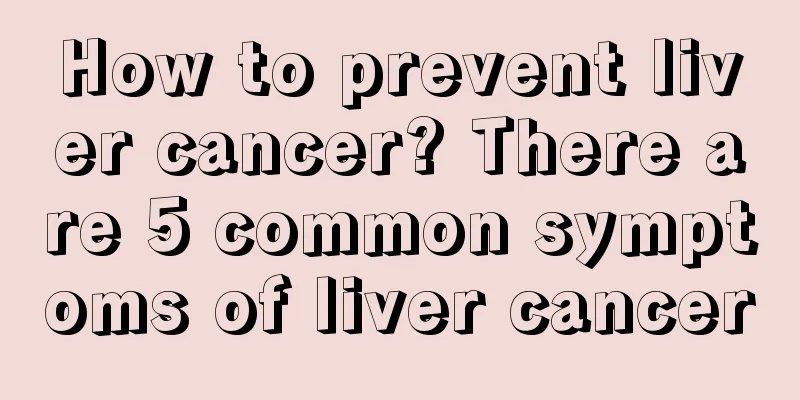Why does saliva smell? What's the matter with saliva smelling?

|
Some people have bad breath and are even afraid to stand face to face with others, which seriously affects their self-confidence and social skills. Some people think that it is the saliva that smells, but why does the saliva smell? What is going on with the saliva that smells? In fact, it is not because of the bad saliva. The bad smell in the mouth is mostly caused by oral diseases. For example, periodontitis problems such as tooth decay and residual roots can cause bad breath. 1. Why does saliva smell bad? According to statistics, 80% to 90% of bad breath comes from the oral cavity. Untreated caries, residual roots, residual crowns, poor restorations, abnormal anatomical structures, gingivitis, periodontitis and oral mucosal diseases in the mouth can all cause bad breath. Among them, dental caries and periodontal disease are the most common related diseases. Food residues and plaque often remain in deep caries cavities and under overhangs of poor restorations, and bacteria ferment and decompose them, producing odor. Dental pulp necrosis or suppurative pulpitis can also cause a bad odor if not treated; patients with periodontal disease often have a large amount of tartar and plaque, and the bacteria in the periodontal pockets ferment to produce hydrogen sulfide, indole and ammonia, which produce a bad odor. In addition, periodontal abscesses and pus discharge from periodontal pockets are mostly caused by Staphylococcus aureus combined with periodontal pathogens, which can also emit a foul odor. The quality and quantity of saliva also play an important role. The decrease in the amount of saliva and the increase in organic components such as protein reduce the flushing and buffering effects of saliva, allowing bacteria to multiply and decompose the organic components in saliva, gingival crevicular fluid and food residues, producing a large amount of volatile sulfides, indoles and other substances, causing bad breath. 80% to 90% of bad breath comes from the oral cavity. 2. The harm of bad breath People with bad breath are very likely to develop constipation, hemorrhoids, etc. If patients with bad breath are not treated in time, their gastritis, gastric ulcer and enteritis will often become significantly worse. The number of E. coli in the intestines of people with bad breath is at least 200 times higher than that of other people. The number of Helicobacter pylori in people with bad breath is at least 150 times higher than that in other people. If patients with bad breath are not treated in time, the number of oral flora will increase greatly, and periodontitis, gingivitis, and oral ulcers will occur frequently. Among the gastrointestinal diseases that are closely related to bad breath, the most serious are gastric cancer and gastroparesis. In a survey of patients with gastric cancer and gastroparesis, it was found that these patients' bad breath generally reached the deep standard. 3. Tips for preventing and treating bad breath Chew cilantro, tea leaves, or peanuts. Add some mint or fresh lemon juice to milk or boiling water and drink a glass to remove the odor. Eat some tomatoes, grapefruits, dates, and oranges. In addition, chewing orange peels can also eliminate odors. Chew gum or use breath freshener. Gargling with light salt water after meals can kill bacteria and reduce inflammation. Fresh lemon juice What foods to eat for bad breath 1. Parsley Parsley can effectively neutralize bad odors in the mouth and remove bad breath caused by smoking. If it is not convenient to buy celery, you can also replace it with cilantro, mint, mugwort and cardamom. In order to achieve the best results, you need to chew the above foods more or drink them like tea. These foods not only eliminate bad breath, but also aid digestion. 2. Tea It is bitter in nature and cold in taste, and has the effects of quenching thirst, refreshing the mind, digesting food, and eliminating restlessness and greasiness. Gargling with strong tea or chewing tea leaves can remove bad breath. If you have bad breath after eating garlic, mutton and other foods, put a handful of tea leaves in your mouth several times, chew slowly, and swallow them slowly after the saliva dissolves the tea leaves. It has a very good effect. 3. Yogurt Recent studies by scientists have shown that drinking yogurt every day can help eliminate the level of hydrogen sulfide in the mouth, which is the culprit that causes bad breath. Long-term consumption of yogurt can also prevent the growth of harmful bacteria in the mouth, which can prevent gum diseases and tooth spots. Of course, when choosing yogurt, be sure to choose pure yogurt without adding sugar. yogurt 4. Kumquat It is very effective for bad breath accompanied by chest tightness and indigestion. Take 5-6 fresh kumquats, wash them and chew them. This prescription has the effects of aromatic opening of the orifices, relieving qi and strengthening the spleen. |
<<: What diseases can be transmitted by saliva
>>: What diseases can be detected by saliva examination
Recommend
What are the dangers of body shaping pants?
People nowadays love beauty very much and hope to...
How to prevent bladder cancer recurrence: 6 tips to keep in mind
With the continuous improvement of people's l...
Nutritional value of passion fruit
With the rapid development of the transportation ...
What are some simple self-treatment methods for pharyngitis and laryngitis?
Nowadays, many cases of laryngitis and pharyngiti...
The harm of skin cancer to people
It is said that the body is the capital of revolu...
What medicine is good for prostate cancer
For a long time in the past, people believed that...
How to choose a pillow core
Most people have this common sense: “Sleeping sou...
What is the connection between menstrual disorders and endometrial cancer? Closely related
Many women have menstrual disorders because of en...
Photos of bloody stools caused by colorectal cancer
Bowel cancer bleeding in the stool is usually cau...
What are the symptoms of gallbladder cancer
There are many patients with gallbladder cancer. ...
What are the obvious symptoms of hyperthyroidism?
According to clinical research, the incidence of ...
Daily potassium supplement
Potassium is a trace element that regulates the a...
How long should crabs be soaked in salt water?
The price of seafood such as crabs is generally q...
Why do I feel weak during pregnancy
Female friends will experience some pregnancy rea...
Melanoma, what causes it?
There are many reasons for the formation of moles...









